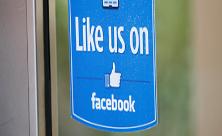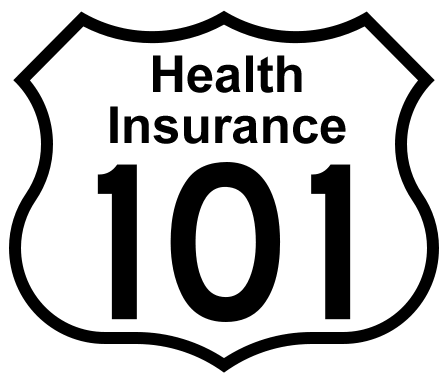

NURSES OF AMERICA
IF YOU NEED HELP TO SELL YOUR REAL
ESTATE PROPERTY IN SOUTH FLORIDA;
PLEASE CALL Mr. ANTONY A PROFESSIONAL
REALTOR. -- Fortune Realty. --- CLIENTS
COMPLETE SATISFACTION GUARANTEED !
HOME-SELLING --// -' -REAL ESTATE
SERVICES-- HOME-BUYING -
- REAL ESTATE INFO.--//-- MORTGAGE LOANS
INFO. --
-TIPS FOR HOME BUYERS -//- Top 10 Home
Buying Mistakes To Avoid--
ESTATE PROPERTY IN SOUTH FLORIDA;
PLEASE CALL Mr. ANTONY A PROFESSIONAL
REALTOR. -- Fortune Realty. --- CLIENTS
COMPLETE SATISFACTION GUARANTEED !
HOME-SELLING --// -' -REAL ESTATE
SERVICES-- HOME-BUYING -
- REAL ESTATE INFO.--//-- MORTGAGE LOANS
INFO. --
-TIPS FOR HOME BUYERS -//- Top 10 Home
Buying Mistakes To Avoid--
..Buyheremarket Enterprise -// Business Opportunity - // Insurance Of America - // Financial Academy School - //
AventuraICA - // Real Estate For Buyers & Sellers -//.
..Business Registration - // Investment Clubs - // Business Info - // Academy Of Finance // Business Knowledge -
// Institute Of Financial Literacy-// Business Structure - // BLOG KNOWLEDGE AND GENERAL INFORMATION..//
AventuraICA - // Real Estate For Buyers & Sellers -//.
..Business Registration - // Investment Clubs - // Business Info - // Academy Of Finance // Business Knowledge -
// Institute Of Financial Literacy-// Business Structure - // BLOG KNOWLEDGE AND GENERAL INFORMATION..//
| ''A Life Insurance Plan Is Available For Every Wallet; Low Cost Premium, Very Affordable Plan With A Great Company. SOUTH FL. CONTACT ANTHONY - <Be Properly Protected With a Good Life Insurance Policy - WE HAVE AN INSURANCE PLAN TO BETTER HELP YOURSELF, YOUR FAMILY, YOUR FRIENDS, AND OTHER FAMILIES TO BE PROPERLY PROTECTED. - EXCELLENT LIFE INSURANCE PLAN: BEST PRICES, WITH THE BEST COMPANY. LEARN MORE.. ''SOUTH FL. CALL ANTHONY THE LICENSED INSURANCE REPRESENTATIVE |
''NURSES OF AMERICA / Nursing Alliance Of America /
Medical and Nursing Resource for professionals in the nursing industry-
Information on LPN, RN, BSN, MSN, APRN. Nurses Prorams And Hiring Hospitals |
Nursing Jobs, Nurse Continuing Education, Nursing Schools and Financial aid
information.
Nurse on practice manikin Nursing is one of those career choices that give people
an opportunity to serve and nurse the needful. Just like doctors, nurses are a
crucial asset for the health care industry. - TWIT WITH US ON TWITTER.''
'' Start, or Advance your career in nursing. FACEBOOK
US.''Like us
Medical and Nursing Resource for professionals in the nursing industry-
Information on LPN, RN, BSN, MSN, APRN. Nurses Prorams And Hiring Hospitals |
Nursing Jobs, Nurse Continuing Education, Nursing Schools and Financial aid
information.
Nurse on practice manikin Nursing is one of those career choices that give people
an opportunity to serve and nurse the needful. Just like doctors, nurses are a
crucial asset for the health care industry. - TWIT WITH US ON TWITTER.''
'' Start, or Advance your career in nursing. FACEBOOK
US.''Like us
''Ten Golden Rules for Nurses''
It’s no secret that hospitals and healthcare
are undergoing tremendous changes. Medical
and nursing associations are struggling to
maintain quality patient care and hospitals are
focused on the bottom line in order to stay
alive.
''How to become a nurse? The Most
Demanding Profession -
Nurse on practice manikin Nursing is one of
those career choices that give people an
opportunity to serve and nurse the needful.
Just like doctors, nurses are a crucial asset of
hospitals, nursing homes etc
''10 Reasons to Become a Nurse'' /
The Career by Excellence - The
Most respectful Career -
Thinking about nursing? Here are 10 reasons
why nursing makes a great career.
'' Medical, Nursing Field Career Training.
Health Care Booming Field - Becoming A
Nurse Is Within Your Reach
It’s no secret that hospitals and healthcare
are undergoing tremendous changes. Medical
and nursing associations are struggling to
maintain quality patient care and hospitals are
focused on the bottom line in order to stay
alive.
''How to become a nurse? The Most
Demanding Profession -
Nurse on practice manikin Nursing is one of
those career choices that give people an
opportunity to serve and nurse the needful.
Just like doctors, nurses are a crucial asset of
hospitals, nursing homes etc
''10 Reasons to Become a Nurse'' /
The Career by Excellence - The
Most respectful Career -
Thinking about nursing? Here are 10 reasons
why nursing makes a great career.
'' Medical, Nursing Field Career Training.
Health Care Booming Field - Becoming A
Nurse Is Within Your Reach
''Nurse Practitioner Career
Profile''
'Nurse Practitioners expand the
horizons of the nursing profession by
providing a unique blend of nursing and
medicine into their scope of practice.
''Doctor of Nursing Practice
(DNP) Programs''
Those who are interested in advanced
clinical practice, teaching as a
professor or clinical instructor, or
narrowing their focus down to a
specific field in nursing could be well
suited to become a Doctor of Nursing
Practice (DNP). Follow these simple
steps towards earning your doctorate
degree in nursing
':HEALTH CARE INSURANCE WHAT
YOU REALLY NEED TO KNOW ABOUT...
Profile''
'Nurse Practitioners expand the
horizons of the nursing profession by
providing a unique blend of nursing and
medicine into their scope of practice.
''Doctor of Nursing Practice
(DNP) Programs''
Those who are interested in advanced
clinical practice, teaching as a
professor or clinical instructor, or
narrowing their focus down to a
specific field in nursing could be well
suited to become a Doctor of Nursing
Practice (DNP). Follow these simple
steps towards earning your doctorate
degree in nursing
':HEALTH CARE INSURANCE WHAT
YOU REALLY NEED TO KNOW ABOUT...
'''NURSES OF AMERICA
/ Nursing Alliance Of
America /
''Likes us on Fabook /
Nurses of America on
facebook''
''Follow us on twitter /
Nurses of America is on
twitter''
''Blog with us / Check
out our interesting and
very informative
blogs''.-
':HEALTH CARE INSURANCE
WHAT YOU REALLY NEED
TO KNOW ABOUT..
'' Medical, Nursing Field Career
Training. Health Care Booming
Field - Becoming A Nurse Is
Within Your Reach
/ Nursing Alliance Of
America /
''Likes us on Fabook /
Nurses of America on
facebook''
''Follow us on twitter /
Nurses of America is on
twitter''
''Blog with us / Check
out our interesting and
very informative
blogs''.-
':HEALTH CARE INSURANCE
WHAT YOU REALLY NEED
TO KNOW ABOUT..
'' Medical, Nursing Field Career
Training. Health Care Booming
Field - Becoming A Nurse Is
Within Your Reach
''LPN TO RN – TO BSN – TO MSN – TO
APRN // Everything You Need to Know
About Nursing Programs.
''Nurses Prorams And Hiring
Hospitals |
Nursing Jobs, Nurse Continuing
Education, Nursing Schools and Financial
aid information.
Nursing General Information: knowledge
':HEALTH CARE INSURANCE WHAT YOU
REALLY NEED TO KNOW ABOUT..
APRN // Everything You Need to Know
About Nursing Programs.
''Nurses Prorams And Hiring
Hospitals |
Nursing Jobs, Nurse Continuing
Education, Nursing Schools and Financial
aid information.
Nursing General Information: knowledge
':HEALTH CARE INSURANCE WHAT YOU
REALLY NEED TO KNOW ABOUT..
| ''Tips for a Great Nurse Resume & Interview'' There are three parts to landing a fantastic job as a nurse; resume preparation, interview talking points and orientation success. -------------------------------- ''Boards of Nursing in the United States: State-by-State Web Links'' Some states have separate Web sites for boards for LPNs/LVNs. Map links are to Boards of Registered Nursing. See alphabetical list below for a comprehensive list of all links. Boards of Nursing have been established by each state in the United States to establish standards for safe nursing care and issue licenses to individuals to practice nursing. ----- TWIT WITH US, YES Nurses Of America is on twitter. |
| ''Nurse License Verification / Licensure QuickConfirm '' ''Nurse License Verification Terms & Conditions'' Check the validity of a license. ''Board Of Nursing: To find your local Board of Nursing, simply browse the states below. Board of Nursing Locations in the United States & US Territories- ''GO BELOW THE PAGE... |

HERE WE WILL HELP YOU FIND A BETTER WAY TO START A NURSING
CAREER, OR ADVANCE YOUR NURSING CAREER TO HIGHER LEVEL.
CAREER, OR ADVANCE YOUR NURSING CAREER TO HIGHER LEVEL.
| NURSING PROGRAMS FROM A TO Z. ” Introduction to The Best Nursing Programs / Nursing General Information: |
..Buyheremarket Enterprise -// Business Opportunity - // Insurance Of America - // Financial Academy School - // AventuraICA - // Real Estate For Buyers & Sellers -//
..Business Registration - // Investment Clubs - // Business Info - // Academy Of Finance // Business Knowledge - // Institute Of Financial Literacy-// Business Structure -
..Business Registration - // Investment Clubs - // Business Info - // Academy Of Finance // Business Knowledge - // Institute Of Financial Literacy-// Business Structure -
'''NURSES OF AMERICA / Nursing
Alliance Of America /
''Likes us on Fabook / Nurses of
America on facebook''
''Follow us on twitter / Nurses of
America is on twitter''
''Blog with us / Check out our
interesting and very informative
blogs''.-
Alliance Of America /
''Likes us on Fabook / Nurses of
America on facebook''
''Follow us on twitter / Nurses of
America is on twitter''
''Blog with us / Check out our
interesting and very informative
blogs''.-
''Boards of Nursing in the
United States: State-by-State
Web Links, Apply For A License,
Renew A License, Continue
Education,
License Verification.
-Boards of Nursing have been
established by each state in the
United States to establish
standards for safe nursing care
and issue licenses to individuals
to practice nursing. To reach
the Web site for any state's
Board of Nursing, click on your
State link.
Many practitioners are familiar
with the Nurse Practice Act in
their own states, but they often
need a quick link to the nursing
boards in other states. This
Medscape resource is designed
to provide just that.
'' To find your local Board of
Nursing, simply browse
the states below.
Board of Nursing Locations
in the United States & US
Territories-
United States: State-by-State
Web Links, Apply For A License,
Renew A License, Continue
Education,
License Verification.
-Boards of Nursing have been
established by each state in the
United States to establish
standards for safe nursing care
and issue licenses to individuals
to practice nursing. To reach
the Web site for any state's
Board of Nursing, click on your
State link.
Many practitioners are familiar
with the Nurse Practice Act in
their own states, but they often
need a quick link to the nursing
boards in other states. This
Medscape resource is designed
to provide just that.
'' To find your local Board of
Nursing, simply browse
the states below.
Board of Nursing Locations
in the United States & US
Territories-
''Alabama Board of Nursing
''Alaska Board of Nursing
''Arizona State Board of Nursing
''Arkansas State Board of Nursing
'California Board of Registered Nursing
*California Board of Vocational Nursing
and Psychiatric Technicians
'Colorado Board of Nursing
''Connecticut Board of Examiners for
Nursing
'Delaware Board of Nursing
''District of Columbia Board of Nursing
''Florida Board of Nursing
''Georgia Board of Nursing
*Georgia State Board of Licensed
Practical Nurses
''Hawaii Board of Nursing
''Idaho Board of Nursing
''Illinois Division of Professional Regulation
''Indiana State Board of Nursing
''Iowa Board of Nursing
''Kansas State Board of Nursing
''Kentucky Board of Nursing
''Louisiana State Board of Nursing
*Louisiana State Board of Practical Nurse
Examiners
''Maine State Board of Nursing
''Maryland Board of Nursing
''Massachusetts Board of Registration in
Nursing
''Michigan CIS/Bureau of Health
Professions
''Minnesota Board of Nursing
''Mississippi Board of Nursing
''Missouri Division of Professional
Registration
''Montana State Board of Nursing
''Nebraska Department of Health and
Human Services Regulation and
Licensure, Nursing and Nursing Support
''Nevada State Board of Nursing
''New Hampshire Board of Nursing
''New Jersey Board of Nursing
''New Mexico Board of Nursing
''New York State Board of Nursing
''North Carolina Board of Nursing
''North Dakota Board of Nursing
''Ohio Board of Nursing
''Oklahoma Board of Nursing
''Oregon State Board of Nursing
''Pennsylvania State Board of Nursing
''Rhode Island Board of Nurse
Registration and Nursing Education
''South Carolina Board of Nursing
''South Dakota Board of Nursing
''Tennessee State Board of Nursing
''Texas Board of Nurse Examiners
''Utah State Board of Nursing
''Vermont State Board of Nursing
''Virginia Board of Nursing
''Washington State Nursing Care Quality
Assurance Commission
''West Virginia Board of Examiners for
Registered Professional Nurses
*West Virginia State Board of Examiners
for Licensed Practical Nurses
''Wisconsin Department of Regulation
and Licensing
''Wyoming State Board of Nursing
*Some states have separate Web sites
for boards of licensed practical nursing.
''Alaska Board of Nursing
''Arizona State Board of Nursing
''Arkansas State Board of Nursing
'California Board of Registered Nursing
*California Board of Vocational Nursing
and Psychiatric Technicians
'Colorado Board of Nursing
''Connecticut Board of Examiners for
Nursing
'Delaware Board of Nursing
''District of Columbia Board of Nursing
''Florida Board of Nursing
''Georgia Board of Nursing
*Georgia State Board of Licensed
Practical Nurses
''Hawaii Board of Nursing
''Idaho Board of Nursing
''Illinois Division of Professional Regulation
''Indiana State Board of Nursing
''Iowa Board of Nursing
''Kansas State Board of Nursing
''Kentucky Board of Nursing
''Louisiana State Board of Nursing
*Louisiana State Board of Practical Nurse
Examiners
''Maine State Board of Nursing
''Maryland Board of Nursing
''Massachusetts Board of Registration in
Nursing
''Michigan CIS/Bureau of Health
Professions
''Minnesota Board of Nursing
''Mississippi Board of Nursing
''Missouri Division of Professional
Registration
''Montana State Board of Nursing
''Nebraska Department of Health and
Human Services Regulation and
Licensure, Nursing and Nursing Support
''Nevada State Board of Nursing
''New Hampshire Board of Nursing
''New Jersey Board of Nursing
''New Mexico Board of Nursing
''New York State Board of Nursing
''North Carolina Board of Nursing
''North Dakota Board of Nursing
''Ohio Board of Nursing
''Oklahoma Board of Nursing
''Oregon State Board of Nursing
''Pennsylvania State Board of Nursing
''Rhode Island Board of Nurse
Registration and Nursing Education
''South Carolina Board of Nursing
''South Dakota Board of Nursing
''Tennessee State Board of Nursing
''Texas Board of Nurse Examiners
''Utah State Board of Nursing
''Vermont State Board of Nursing
''Virginia Board of Nursing
''Washington State Nursing Care Quality
Assurance Commission
''West Virginia Board of Examiners for
Registered Professional Nurses
*West Virginia State Board of Examiners
for Licensed Practical Nurses
''Wisconsin Department of Regulation
and Licensing
''Wyoming State Board of Nursing
*Some states have separate Web sites
for boards of licensed practical nursing.
| ''Advanced Nursing Practice / Nursing Certification Programs for the Nursing Professionals.-- ''Licensed Practical Nurse (LPN) Becoming an LPN has a great number of rewards both financially and emotionally. ''LPN-Why Should You Become an LPN ? |
| ''Nurses of America / 'Nursing Alliance Of America on facebook'' ------------------------- '''Insurance Of America An Excellent Place To Learn Everything About Insurance.. ''Like Us On Facebook.- '- ---------------------------------- '''Like Buyheremarket On Facebook.- BUYHEREMARKET ENTERPRISE Is Very Instructive And Extremely Informative. LIKE US ON FACEBOOK- ---------------------- '-''Like Us, Financial Academy School On Facebook.- |
''Nursing's Blog #1-
''Nurses Of America is on
twitter''
''The Blog Of Nurses Of
America''
''Nurses Of America is on
linkedin''
''Nursing Alliance Blog''
''Nurses Of America is on
twitter''
''The Blog Of Nurses Of
America''
''Nurses Of America is on
linkedin''
''Nursing Alliance Blog''
| Internet Blogs The Most Interesting Blogs On The Web, The Most Educative, Most Instructive - Employment-Entrepreneurship- Investing & Finance'' ''What About Network Marketing? A Powerful Business Opportunity Of The 21 First Century. How to get in? And how to make success? 'What About Social Media? How to take advantage of the internet and social media to make money? Success Tips And Resources / How To Find Clients & Prospects On Social Media to grow your business?- ''Discover! How to Succeed in Business. Start your own business to maximize earnings and create a legacy for you and your family.- ''About Real estate investments: What everyone should know about the real estate market. How to find financing '' About Insurance: What exactly you should find out about your insurance company, policy and plan.'' ''About financial education, financial knowledge, financial literacy: Economy-business-finance-investing'' - What About Employment - Entrepreneurship - Investing & Finance'' 'About the stock market, how to get in and how to get out financially safe and secure. Financial academy school, Institution of finance business and economy.'' ''About health care, medical, nursing. How to advance your health care career, or how to start in the health care industry... ''What About Retirement: ''..Social Security Benefits: 12 Things You Must to Know About.-- |
'' Insurance Of America // Understanding
Different Type Of Insurance.
- Life Insurance - : Ways to Reduce Your Life
Insurance Premium; Learn the importance and
benefits of life insurance in real life
- Health Care Insurance // : Your Health Care
Insurance and what it should Cover; Things to
Remember When Buying Health-care
Insurance...
- Long-Term Care Insurance // What is long-term
care insurance? Why Should I buy a long-term
care policy? What should I look for in a
long-term policy?
-
Insurance 101 // Market insurance, Affordable
Care Act; Obamacare well trained & certified
staff waiting in your local area to help with the
application..
- Nurses Of America - ' 'NURSES OF AMERICA /
Nursing Alliance Of America /
Medical and Nursing Resource for
professionals in the nursing industry-
Information
on LPN, RN, BSN, MSN, APRN. Nurses Prorams
And Hiring Hospitals | Nursing Jobs,
Nurse Continuing Education, Nursing Schools
etc.
' Medical Resources // What kind of financial aid
is available? Federal Government Programs
Federal Student Aid (FAFSA) from the U.S.
Government is available and much more...
- Nursing & Nurses - //'Health Care Opportunity -
Health Care Employment. Do not let your
anxiety overcome your dreams. Nursing
Alliance Of America...//
' Long-Term Care Insurance Blog - //'' Life
Insurance Blog //- Health Care Insurance Blog -//
Nurses & Medical Blog -
Different Type Of Insurance.
- Life Insurance - : Ways to Reduce Your Life
Insurance Premium; Learn the importance and
benefits of life insurance in real life
- Health Care Insurance // : Your Health Care
Insurance and what it should Cover; Things to
Remember When Buying Health-care
Insurance...
- Long-Term Care Insurance // What is long-term
care insurance? Why Should I buy a long-term
care policy? What should I look for in a
long-term policy?
-
Insurance 101 // Market insurance, Affordable
Care Act; Obamacare well trained & certified
staff waiting in your local area to help with the
application..
- Nurses Of America - ' 'NURSES OF AMERICA /
Nursing Alliance Of America /
Medical and Nursing Resource for
professionals in the nursing industry-
Information
on LPN, RN, BSN, MSN, APRN. Nurses Prorams
And Hiring Hospitals | Nursing Jobs,
Nurse Continuing Education, Nursing Schools
etc.
' Medical Resources // What kind of financial aid
is available? Federal Government Programs
Federal Student Aid (FAFSA) from the U.S.
Government is available and much more...
- Nursing & Nurses - //'Health Care Opportunity -
Health Care Employment. Do not let your
anxiety overcome your dreams. Nursing
Alliance Of America...//
' Long-Term Care Insurance Blog - //'' Life
Insurance Blog //- Health Care Insurance Blog -//
Nurses & Medical Blog -
| Nurses of America is where all nurses meet, is where the employee in the nursing industry group themselves to learn more and striving for excellent. |
The U.S. Is Running Out
of Nurses
The country has
experienced nursing
shortages for decades,
but an aging population
means the problem is
about to get much worse.
The U.S. has been dealing with a nursing deficit
of varying degrees for decades, but today—due
to an aging population, the rising incidence of
chronic disease, an aging nursing workforce, and
the limited capacity of nursing schools—this
shortage is on the cusp of becoming a crisis, one
with worrying implications for patients and
health-care providers alike
America’s 3 million nurses
make up the largest segment of
the health-care workforce in
the U.S., and nursing is currently one of the
fastest-growing occupations in the country.
Despite that growth, demand is outpacing supply.
According to the Bureau of Labor Statistics, 1.2
million vacancies will emerge for registered
nurses between 2014 and 2022.* By 2025, the
shortfall is expected to be “more than twice as
large as any nurse shortage experienced since
the introduction of Medicare and Medicaid in the
mid-1960s,”
The primary driving
force in this looming
crisis is the aging of the
Baby Boomer generation:
Today, there are more Americans over the age
of 65 than at any other time in U.S. history.
Between 2010 and 2030, the population of
senior citizens will increase by 75 percent to 69
million, meaning one in five Americans will be a
senior citizen; in 2050, an estimated 88.5 million
people in the U.S. will be aged 65 and older
And as the population ages, demand for health-
care services will soar. About 80 percent of older
adults have at least one chronic condition, and 68
percent have at least two, according to the
National Council on Aging.
“The aging population
and chronic disease are
creating the perfect
storm driving demand
for nurses.”
People with chronic diseases clearly use more
health-care services, and people who are older
have more chronic disease
. “The aging population and
chronic disease are creating
the perfect storm driving
demand for nurses.”
But swelling demand is only part of the problem.
Like the patients they serve, the country’s
nurses are also aging.
Around a million registered
nurses (RNs) are currently
older than 50, meaning one-
third of the current nursing
workforce will reach retirement
age in the next 10 to 15 years.
Nearly 700,000 nurses are
projected to retire or leave the
labor force by 2024.*
Filling the vacancies left by
retiring nurses isn’t a simple one-
for-one proposition. According to
an American Association of
Colleges of Nursing report,
“U.S. nursing schools turned away 79,659
qualified applicants from baccalaureate and
graduate nursing programs in 2012 due to
insufficient number of faculty, clinical sites,
classroom space, clinical preceptors, and budget
constraints.”
Once again, aging is a factor: Many nursing
faculty members are approaching retirement,
but without them, nursing schools can’t expand
their cohorts
“Lo and behold, for the past 20 to 30 years,
California has only produced 50 percent of the
nurses it needed
Like unhappy families,
each shortage pocket is
unique. In states like Florida and Arizona,
the aging population is the real culprit; in other
states, the gap is largely due to a limited number
of nurse-education opportunities. that nursing
supply is “mostly local,” meaning nurses tend to
stay in the same markets where they go to
school.
Fewer schools means
fewer nurses. Unsurprisingly, rural
and poorer areas have a harder time recruiting
nurses than urban magnet hospitals, which can
offer higher-paying jobs and lifestyle perks.
Those standards can represent
the difference between life and
death. When nurses are stretched too thin,
they have less time and energy to devote to each
patient. Overworking leads to fatigue and
burnout, which threatens the quality of care and
increases the incidence of error.
Past research has found links
between insufficient nursing
staffing and higher rates of
hospital readmission and
patient mortality. Higher patient loads
are also linked to higher rates of nurse turnover,
which can costly, disruptive, and potentially
harmful to patient safety. Conversely, more and
happier nurses can mean better care and better
outcomes.
When facing a nursing
shortage, hospitals have
a handful of options
beyond closing beds.
They can ask their nurses to work more hours or
offer financial incentives for those who pick up
extra shifts, though for the reasons outlined
above, this may not be a safe option. Many
hospitals offer financial incentives to nurses who
work additional shifts. Some companies also rely
on temporary “travel nurses” who typically work
for around 13 weeks at a time, but they come at
a premium.
Beyond a good salary, strong cultural fit, flexible
hours, and manageable expectations, nurses
also want to work in places where they can
practice to the full scope of their license. Each
state has different guidelines for what each type
of license allows a nurse to do.
For example, nurse practitioners are more
limited in in South Dakota than in some
neighboring states, and may choose not to take
a job in South Dakota as a result. Wightman said
national licensure for nurses, Wightman believes,
would make it easier to address deficits.
Another long-term strategy is
to open up the paths to a
degree. In the Institute of
Medicine’s “The Future of
Nursing” report, the authors recommended
that nurses should achieve higher levels of
education and training, and called for the
proportion of nurses with baccalaureate degrees
to increase to 80 percent by 2020. While it would
seem that more highly educated nurses is
something to strive for, this could potentially
exacerbate shortages.
Many aspiring nurses, particularly those in rural
and poorer areas, enter the field with an
associate's degree and pursue an advanced
degree later. Given that nurses tend to stay
local, providing viable educational opportunities
in these communities is key.
Other strategies to address the
nursing shortage include
incentives for nurses to become
nurse educators.
“We don't want to cut off access to education in
rural communities where, in many cases, an
associate's degree in nursing is the only local
nursing education opportunity,” Salsburg said.
“The associate’s degree has to be seen as a
pathway to nursing.”
Other strategies to address the
nursing shortage have included
public-private partnerships and
incentives for nurses to become
nurse educators. some companies
recently launched the Campaign for Nursing’s
Future, an effort that uses TV commercials,
videos, a website, and brochures to tout the
benefits of “this rich and rewarding career.”
the American Nurses Association is currently
lobbying Congress to increase funding for Title
VIII of the Public Health Service Act.
The provision allots federal grants for nursing
schools and organizations to advance their
educational programs, promote diversity in the
field, repay loans for nursing students who work
in facilities with critical shortages, train geriatric
nurses, and more.
of Nurses
The country has
experienced nursing
shortages for decades,
but an aging population
means the problem is
about to get much worse.
The U.S. has been dealing with a nursing deficit
of varying degrees for decades, but today—due
to an aging population, the rising incidence of
chronic disease, an aging nursing workforce, and
the limited capacity of nursing schools—this
shortage is on the cusp of becoming a crisis, one
with worrying implications for patients and
health-care providers alike
America’s 3 million nurses
make up the largest segment of
the health-care workforce in
the U.S., and nursing is currently one of the
fastest-growing occupations in the country.
Despite that growth, demand is outpacing supply.
According to the Bureau of Labor Statistics, 1.2
million vacancies will emerge for registered
nurses between 2014 and 2022.* By 2025, the
shortfall is expected to be “more than twice as
large as any nurse shortage experienced since
the introduction of Medicare and Medicaid in the
mid-1960s,”
The primary driving
force in this looming
crisis is the aging of the
Baby Boomer generation:
Today, there are more Americans over the age
of 65 than at any other time in U.S. history.
Between 2010 and 2030, the population of
senior citizens will increase by 75 percent to 69
million, meaning one in five Americans will be a
senior citizen; in 2050, an estimated 88.5 million
people in the U.S. will be aged 65 and older
And as the population ages, demand for health-
care services will soar. About 80 percent of older
adults have at least one chronic condition, and 68
percent have at least two, according to the
National Council on Aging.
“The aging population
and chronic disease are
creating the perfect
storm driving demand
for nurses.”
People with chronic diseases clearly use more
health-care services, and people who are older
have more chronic disease
. “The aging population and
chronic disease are creating
the perfect storm driving
demand for nurses.”
But swelling demand is only part of the problem.
Like the patients they serve, the country’s
nurses are also aging.
Around a million registered
nurses (RNs) are currently
older than 50, meaning one-
third of the current nursing
workforce will reach retirement
age in the next 10 to 15 years.
Nearly 700,000 nurses are
projected to retire or leave the
labor force by 2024.*
Filling the vacancies left by
retiring nurses isn’t a simple one-
for-one proposition. According to
an American Association of
Colleges of Nursing report,
“U.S. nursing schools turned away 79,659
qualified applicants from baccalaureate and
graduate nursing programs in 2012 due to
insufficient number of faculty, clinical sites,
classroom space, clinical preceptors, and budget
constraints.”
Once again, aging is a factor: Many nursing
faculty members are approaching retirement,
but without them, nursing schools can’t expand
their cohorts
“Lo and behold, for the past 20 to 30 years,
California has only produced 50 percent of the
nurses it needed
Like unhappy families,
each shortage pocket is
unique. In states like Florida and Arizona,
the aging population is the real culprit; in other
states, the gap is largely due to a limited number
of nurse-education opportunities. that nursing
supply is “mostly local,” meaning nurses tend to
stay in the same markets where they go to
school.
Fewer schools means
fewer nurses. Unsurprisingly, rural
and poorer areas have a harder time recruiting
nurses than urban magnet hospitals, which can
offer higher-paying jobs and lifestyle perks.
Those standards can represent
the difference between life and
death. When nurses are stretched too thin,
they have less time and energy to devote to each
patient. Overworking leads to fatigue and
burnout, which threatens the quality of care and
increases the incidence of error.
Past research has found links
between insufficient nursing
staffing and higher rates of
hospital readmission and
patient mortality. Higher patient loads
are also linked to higher rates of nurse turnover,
which can costly, disruptive, and potentially
harmful to patient safety. Conversely, more and
happier nurses can mean better care and better
outcomes.
When facing a nursing
shortage, hospitals have
a handful of options
beyond closing beds.
They can ask their nurses to work more hours or
offer financial incentives for those who pick up
extra shifts, though for the reasons outlined
above, this may not be a safe option. Many
hospitals offer financial incentives to nurses who
work additional shifts. Some companies also rely
on temporary “travel nurses” who typically work
for around 13 weeks at a time, but they come at
a premium.
Beyond a good salary, strong cultural fit, flexible
hours, and manageable expectations, nurses
also want to work in places where they can
practice to the full scope of their license. Each
state has different guidelines for what each type
of license allows a nurse to do.
For example, nurse practitioners are more
limited in in South Dakota than in some
neighboring states, and may choose not to take
a job in South Dakota as a result. Wightman said
national licensure for nurses, Wightman believes,
would make it easier to address deficits.
Another long-term strategy is
to open up the paths to a
degree. In the Institute of
Medicine’s “The Future of
Nursing” report, the authors recommended
that nurses should achieve higher levels of
education and training, and called for the
proportion of nurses with baccalaureate degrees
to increase to 80 percent by 2020. While it would
seem that more highly educated nurses is
something to strive for, this could potentially
exacerbate shortages.
Many aspiring nurses, particularly those in rural
and poorer areas, enter the field with an
associate's degree and pursue an advanced
degree later. Given that nurses tend to stay
local, providing viable educational opportunities
in these communities is key.
Other strategies to address the
nursing shortage include
incentives for nurses to become
nurse educators.
“We don't want to cut off access to education in
rural communities where, in many cases, an
associate's degree in nursing is the only local
nursing education opportunity,” Salsburg said.
“The associate’s degree has to be seen as a
pathway to nursing.”
Other strategies to address the
nursing shortage have included
public-private partnerships and
incentives for nurses to become
nurse educators. some companies
recently launched the Campaign for Nursing’s
Future, an effort that uses TV commercials,
videos, a website, and brochures to tout the
benefits of “this rich and rewarding career.”
the American Nurses Association is currently
lobbying Congress to increase funding for Title
VIII of the Public Health Service Act.
The provision allots federal grants for nursing
schools and organizations to advance their
educational programs, promote diversity in the
field, repay loans for nursing students who work
in facilities with critical shortages, train geriatric
nurses, and more.

Custom Search

Mental disorders:
A mental disorder, also called a mental
illness or psychiatric disorder, is a
diagnosis by a mental health
professional of a behavioral or mental
pattern that may cause suffering or a
poor ability to function in life. Such
features may be persistent, relapsing
and remitting, or occur as a single
episode. Many disorders have been
described, with signs and symptoms. =
The list of Mental
Disorders...
The following is a list of mental disorders as defined by
the DSM and ICD. The Diagnostic and Statistical Manual
of Mental Disorders (DSM) =
===============
A-
Acute stress disorder
Adjustment disorder
Adolescent antisocial behavior
Adult antisocial behavior
Agoraphobia
Alcohol abuse
Alcohol dependence
Alcohol withdrawal
Alcoholic hallucinosis
Avoidant/restrictive food intake disorder
Alzheimer's disease
Amnestic disorder
Amphetamine dependence
Anorexia nervosa
Anterograde amnesia
Antisocial personality disorder
Attention deficit disorder
Attention deficit hyperactivity disorder
Autism
Autophagia
Avoidant personality disorder
Atelophobia
Asperger syndrome
B-
Barbiturate dependence
Benzodiazepine dependence
Benzodiazepine misuse
Benzodiazepine withdrawal
Bereavement
Bibliomania
Binge eating disorder
Bipolar disorder
Bipolar I disorder
Bipolar II disorder
Body dysmorphic disorder
Borderline intellectual functioning
Borderline personality disorder
Brief psychotic disorder
Bulimia nervosa
C-
Caffeine-induced anxiety disorder
Caffeine-induced sleep disorder
Cannabis dependence
Catatonic disorder
Catatonic schizophrenia
Circadian rhythm sleep disorder
Claustrophobia
Cocaine dependence
Cocaine intoxication
Cognitive disorder
Communication disorder
Conduct disorder
Cotard delusion
Cyclothymia
D-
Delirium tremens
Depersonalization disorder
Depressive disorder
Derealization disorder
Dermatillomania
Desynchronosis
Developmental coordination disorder
Diogenes Syndrome
Dispareunia
Dissociative identity disorder
Dyspraxia
Dyslexia
EDNOS
Ekbom's Syndrome (Delusional Parasitosis)
Encopresis
Epilepsy
Enuresis (not due to a general medical condition)
Erotomania
Exhibitionism
F-
Factitious disorder
Fregoli delusion
Fugue State
G-
Ganser syndrome
Generalized anxiety disorder
General adaptation syndrome
Grandiose delusions
H-
Hallucinogen-related disorder
Hallucinogen persisting perception disorder
Histrionic personality disorder
Huntington's disease
Hypomanic episode
Hypochondriasis
I-
Insomnia
Intermittent explosive disorder
K-
Kleptomania
Korsakoff's syndrome
L-
Lacunar amnesia
M-
Major depressive disorder
Major depressive episode
Maladaptive Daydreaming
Male erectile disorder
Malingering
Manic episode
Mathematics disorder
Melancholia
Minor depressive disorder
Misophonia
Mixed episode
Mood disorder
Munchausen's syndrome
N-
Narcolepsy
Narcissistic personality disorder
Neurocysticercosis
Nicotine withdrawal
Night eating syndrome
Nightmare disorder
O-
Obsessive-compulsive disorder (OCD)
Obsessive-compulsive personality disorder (OCPD)
Oneirophrenia
Opioid dependence
Opioid-related disorder
Oppositional defiant disorder (ODD)
Orthorexia (ON)
Ondine's curse
A mental disorder, also called a mental
illness or psychiatric disorder, is a
diagnosis by a mental health
professional of a behavioral or mental
pattern that may cause suffering or a
poor ability to function in life. Such
features may be persistent, relapsing
and remitting, or occur as a single
episode. Many disorders have been
described, with signs and symptoms. =
The list of Mental
Disorders...
The following is a list of mental disorders as defined by
the DSM and ICD. The Diagnostic and Statistical Manual
of Mental Disorders (DSM) =
===============
A-
Acute stress disorder
Adjustment disorder
Adolescent antisocial behavior
Adult antisocial behavior
Agoraphobia
Alcohol abuse
Alcohol dependence
Alcohol withdrawal
Alcoholic hallucinosis
Avoidant/restrictive food intake disorder
Alzheimer's disease
Amnestic disorder
Amphetamine dependence
Anorexia nervosa
Anterograde amnesia
Antisocial personality disorder
Attention deficit disorder
Attention deficit hyperactivity disorder
Autism
Autophagia
Avoidant personality disorder
Atelophobia
Asperger syndrome
B-
Barbiturate dependence
Benzodiazepine dependence
Benzodiazepine misuse
Benzodiazepine withdrawal
Bereavement
Bibliomania
Binge eating disorder
Bipolar disorder
Bipolar I disorder
Bipolar II disorder
Body dysmorphic disorder
Borderline intellectual functioning
Borderline personality disorder
Brief psychotic disorder
Bulimia nervosa
C-
Caffeine-induced anxiety disorder
Caffeine-induced sleep disorder
Cannabis dependence
Catatonic disorder
Catatonic schizophrenia
Circadian rhythm sleep disorder
Claustrophobia
Cocaine dependence
Cocaine intoxication
Cognitive disorder
Communication disorder
Conduct disorder
Cotard delusion
Cyclothymia
D-
Delirium tremens
Depersonalization disorder
Depressive disorder
Derealization disorder
Dermatillomania
Desynchronosis
Developmental coordination disorder
Diogenes Syndrome
Dispareunia
Dissociative identity disorder
Dyspraxia
Dyslexia
EDNOS
Ekbom's Syndrome (Delusional Parasitosis)
Encopresis
Epilepsy
Enuresis (not due to a general medical condition)
Erotomania
Exhibitionism
F-
Factitious disorder
Fregoli delusion
Fugue State
G-
Ganser syndrome
Generalized anxiety disorder
General adaptation syndrome
Grandiose delusions
H-
Hallucinogen-related disorder
Hallucinogen persisting perception disorder
Histrionic personality disorder
Huntington's disease
Hypomanic episode
Hypochondriasis
I-
Insomnia
Intermittent explosive disorder
K-
Kleptomania
Korsakoff's syndrome
L-
Lacunar amnesia
M-
Major depressive disorder
Major depressive episode
Maladaptive Daydreaming
Male erectile disorder
Malingering
Manic episode
Mathematics disorder
Melancholia
Minor depressive disorder
Misophonia
Mixed episode
Mood disorder
Munchausen's syndrome
N-
Narcolepsy
Narcissistic personality disorder
Neurocysticercosis
Nicotine withdrawal
Night eating syndrome
Nightmare disorder
O-
Obsessive-compulsive disorder (OCD)
Obsessive-compulsive personality disorder (OCPD)
Oneirophrenia
Opioid dependence
Opioid-related disorder
Oppositional defiant disorder (ODD)
Orthorexia (ON)
Ondine's curse
Heart Attack -
Chest pain, pressure,
and discomfort
Most people with heart attacks
experience some sort of chest pain or
discomfort. But it’s important to
understand that chest pains do not
occur in every heart attack.
Chest pain is a common sign of a heart
attack. People have described this
sensation as feeling like an elephant is
standing on their chest.
Some people don’t describe chest pain
as pain at all. Instead, they may say
they felt chest tightness or squeezing.
Sometimes this discomfort can seem
bad for a few minutes and then go
away. Sometimes the discomfort comes
back hours or even a day later. These
could all be signs your heart muscle isn’
t getting enough oxygen.
If you experience chest pains or
tightness, you or someone around you
should call 911 immediately.
Chest pain, pressure,
and discomfort
Most people with heart attacks
experience some sort of chest pain or
discomfort. But it’s important to
understand that chest pains do not
occur in every heart attack.
Chest pain is a common sign of a heart
attack. People have described this
sensation as feeling like an elephant is
standing on their chest.
Some people don’t describe chest pain
as pain at all. Instead, they may say
they felt chest tightness or squeezing.
Sometimes this discomfort can seem
bad for a few minutes and then go
away. Sometimes the discomfort comes
back hours or even a day later. These
could all be signs your heart muscle isn’
t getting enough oxygen.
If you experience chest pains or
tightness, you or someone around you
should call 911 immediately.
Heart Attack
Not just chest pain
Pain and tightness can also radiate in
other areas of the body. Most people
associate a heart attack with pain
working its way down the left arm.
That can happen, but pain can also
appear in other locations, including:
upper abdomen
shoulder
back
neck/throat
teeth or jaw
According to the American Heart
Association, women tend to report
heart attacks that cause pain
specifically in the lower abdomen and
lower portion of the chest. The pain
may not be concentrated to the chest
at all.
It could feel like pressure in the chest
and pain in other parts of the body.
Upper back pain is another area that
women more commonly cite for
causing pain than men.
Not just chest pain
Pain and tightness can also radiate in
other areas of the body. Most people
associate a heart attack with pain
working its way down the left arm.
That can happen, but pain can also
appear in other locations, including:
upper abdomen
shoulder
back
neck/throat
teeth or jaw
According to the American Heart
Association, women tend to report
heart attacks that cause pain
specifically in the lower abdomen and
lower portion of the chest. The pain
may not be concentrated to the chest
at all.
It could feel like pressure in the chest
and pain in other parts of the body.
Upper back pain is another area that
women more commonly cite for
causing pain than men.
Heart Attack
Sweating day and
night
Sweating more than usual —
especially if you aren’t exercising or
being active — could be an early
warning sign of heart problems.
Pumping blood through clogged
arteries takes more effort from your
heart, so your body will sweat more
to try to keep your body
temperature down during the extra
exertion.
If you experience cold sweats or
clammy skin, then you should
consult your doctor.
Night sweats are also a common
symptom for women experiencing
heart troubles. Women may mistake
this symptom as an effect of
menopause.
However, if you wake up and your
sheets are soaked or you cannot
sleep due to your sweating, this
could be a sign of a heart attack,
especially in women.
Sweating day and
night
Sweating more than usual —
especially if you aren’t exercising or
being active — could be an early
warning sign of heart problems.
Pumping blood through clogged
arteries takes more effort from your
heart, so your body will sweat more
to try to keep your body
temperature down during the extra
exertion.
If you experience cold sweats or
clammy skin, then you should
consult your doctor.
Night sweats are also a common
symptom for women experiencing
heart troubles. Women may mistake
this symptom as an effect of
menopause.
However, if you wake up and your
sheets are soaked or you cannot
sleep due to your sweating, this
could be a sign of a heart attack,
especially in women.
Heart Attack
Fatigue
Fatigue can be a less-commonly
recognized heart attack sign in
women. According to the American
Heart Association, some women may
even think their heart attack
symptoms are flu-like symptoms.
A heart attack can cause exhaustion
due to the extra stress on your
heart to try to pump while an area
of blood flow is blocked.
If you often feel tired or exhausted
for no reason, it could be a sign that
something is wrong.
Fatigue and shortness of breath are
more common in women than men
and may begin months before a
heart attack.
That’s why it’s important to see a
doctor as early as possible when
you experience early signs of fatigue.
Fatigue
Fatigue can be a less-commonly
recognized heart attack sign in
women. According to the American
Heart Association, some women may
even think their heart attack
symptoms are flu-like symptoms.
A heart attack can cause exhaustion
due to the extra stress on your
heart to try to pump while an area
of blood flow is blocked.
If you often feel tired or exhausted
for no reason, it could be a sign that
something is wrong.
Fatigue and shortness of breath are
more common in women than men
and may begin months before a
heart attack.
That’s why it’s important to see a
doctor as early as possible when
you experience early signs of fatigue.
Shortness of breath
Your breathing and your heart
pumping blood effectively are very
closely related. Your heart pumps
blood so it can circulate to your
tissues as well as get oxygen from
your lungs. If your heart can’t
pump blood well (as is the case
with a heart attack), you can feel
short of breath.
Shortness of breath can sometimes
be an accompanying symptom to
unusual fatigue in women.
For example, some women report
they would get unusually short of
breath and tired for the activity they
were performing.
Going to the mailbox could leave
them exhausted and unable to catch
their breath. This can be a common
sign of heart attack in women.
Your breathing and your heart
pumping blood effectively are very
closely related. Your heart pumps
blood so it can circulate to your
tissues as well as get oxygen from
your lungs. If your heart can’t
pump blood well (as is the case
with a heart attack), you can feel
short of breath.
Shortness of breath can sometimes
be an accompanying symptom to
unusual fatigue in women.
For example, some women report
they would get unusually short of
breath and tired for the activity they
were performing.
Going to the mailbox could leave
them exhausted and unable to catch
their breath. This can be a common
sign of heart attack in women.
Heart Attack
Lightheadedness
Lightheadedness or dizziness can occur with a heart attack and are often
symptoms women describe. Some women report they feel like they might pass
out if they try to stand up or overexert themselves. This sensation is certainly
not a normal feeling and shouldn’t be ignored if you experience it.
-------------
Heart palpitations
Heart palpitations can range in symptoms from feeling like your heart is
skipping a beat to having changes in heart rhythm that can feel like your heart
is pounding or throbbing. Your heart and body rely on a consistent, steady
beat to best move blood throughout your body. If the beat gets out of
rhythm, this could be a sign you’re having a heart attack.
------------------
Heart palpitations due to heart attack can create a sense of unease or anxiety,
especially in women. Some people may describe heart palpitations as a
sensation their heart is pounding in their neck, not just their chest.
Changes in your heart’s rhythm shouldn’t be ignored, because once the heart
is consistently out of rhythm, it requires medical intervention to get back into
rhythm. If your palpitations are accompanied by dizziness, chest pressure,
chest pain, or fainting, they could be confirmation that a heart attack is
occurring.
Lightheadedness
Lightheadedness or dizziness can occur with a heart attack and are often
symptoms women describe. Some women report they feel like they might pass
out if they try to stand up or overexert themselves. This sensation is certainly
not a normal feeling and shouldn’t be ignored if you experience it.
-------------
Heart palpitations
Heart palpitations can range in symptoms from feeling like your heart is
skipping a beat to having changes in heart rhythm that can feel like your heart
is pounding or throbbing. Your heart and body rely on a consistent, steady
beat to best move blood throughout your body. If the beat gets out of
rhythm, this could be a sign you’re having a heart attack.
------------------
Heart palpitations due to heart attack can create a sense of unease or anxiety,
especially in women. Some people may describe heart palpitations as a
sensation their heart is pounding in their neck, not just their chest.
Changes in your heart’s rhythm shouldn’t be ignored, because once the heart
is consistently out of rhythm, it requires medical intervention to get back into
rhythm. If your palpitations are accompanied by dizziness, chest pressure,
chest pain, or fainting, they could be confirmation that a heart attack is
occurring.
Indigestion, nausea, and vomiting
Often people begin experiencing mild indigestion and other gastrointestinal
problems before a heart attack. Because heart attacks usually occur in older
people who typically have more indigestion problems, these symptoms can
get dismissed as heartburn or another food-related complication.
If you normally have an iron stomach, indigestion or heartburn could be a
signal that something else is going on.
----------------
Heart Attack
What you should do during a heart attack
If you think you are having a heart attack, you or someone nearby should
call emergency services immediately. It is unsafe to drive yourself to the
hospital during a heart attack, so get a ride or call an ambulance.
While you may feel awake and alert enough to drive, the chest pain could
get so severe that you may have trouble breathing or difficulty thinking
clearly.
After you call emergency services
When you call emergency services, the dispatcher may ask you about the
medicines you take and your allergies.
If you don’t currently take a blood thinner and you aren’t allergic to aspirin,
the dispatcher may advise you to chew an aspirin while you’re waiting on
medical attention.
If you have nitroglycerin tablets, you may also wish to use these as directed
by your doctor to reduce chest pain.
If you have a list of medications you currently take or any information
about your medical history, you may wish to take this information with you.
It can speed your medical care.
Often people begin experiencing mild indigestion and other gastrointestinal
problems before a heart attack. Because heart attacks usually occur in older
people who typically have more indigestion problems, these symptoms can
get dismissed as heartburn or another food-related complication.
If you normally have an iron stomach, indigestion or heartburn could be a
signal that something else is going on.
----------------
Heart Attack
What you should do during a heart attack
If you think you are having a heart attack, you or someone nearby should
call emergency services immediately. It is unsafe to drive yourself to the
hospital during a heart attack, so get a ride or call an ambulance.
While you may feel awake and alert enough to drive, the chest pain could
get so severe that you may have trouble breathing or difficulty thinking
clearly.
After you call emergency services
When you call emergency services, the dispatcher may ask you about the
medicines you take and your allergies.
If you don’t currently take a blood thinner and you aren’t allergic to aspirin,
the dispatcher may advise you to chew an aspirin while you’re waiting on
medical attention.
If you have nitroglycerin tablets, you may also wish to use these as directed
by your doctor to reduce chest pain.
If you have a list of medications you currently take or any information
about your medical history, you may wish to take this information with you.
It can speed your medical care.
At the hospital
When you arrive at the hospital, you can expect the emergency medical
personnel to take an electrocardiogram (EKG). This is a pain-free way to
measure your heart’s electrical activity.
If you’re having a heart attack, an EKG is performed to look for unusual
electrical patterns in your heart. The EKG can help your doctor determine if
the heart muscle is damaged and what part of your heart was damaged.
A doctor will also likely order a blood draw. If you’re having a heart attack,
your body usually releases certain proteins and enzymes as a result of the
stress to your heart.
If you’re having a heart attack, your doctor will discuss treatment options
with you. Your risk of severe heart damage is lowered if you start treatment
within several hours of developing symptoms.
-------------
How to prevent future heart problems
According to the Centers for Disease Control and Prevention, an estimated
200,000 deaths from heart disease and stroke are preventable. Even if you
have risk factors for heart disease or have already had a heart attack, there
are things you can do to reduce your risk of having a heart attack in the
future.
People who have already had a heart attack should make sure to take all
medications prescribed to them by their doctor. If your doctor placed
cardiac stents to keep your heart vessels open or you had to have bypass
surgery for your heart, taking the medications your doctor prescribed to
you are vital to preventing a heart attack.
Sometimes if you require surgery for another condition, your doctor may
recommend stopping some medications you take for your heart. An example
might be an antiplatelet (anticlot) medication like clopidogrel (Plavix),
prasurgel (Effient), or ticagrelor (Brillinta).
Always check with the doctor you see for your heart before you stop taking
any of your medications. It is unsafe to abruptly stop many medications,
and it could increase your risk of heart attack.
When you arrive at the hospital, you can expect the emergency medical
personnel to take an electrocardiogram (EKG). This is a pain-free way to
measure your heart’s electrical activity.
If you’re having a heart attack, an EKG is performed to look for unusual
electrical patterns in your heart. The EKG can help your doctor determine if
the heart muscle is damaged and what part of your heart was damaged.
A doctor will also likely order a blood draw. If you’re having a heart attack,
your body usually releases certain proteins and enzymes as a result of the
stress to your heart.
If you’re having a heart attack, your doctor will discuss treatment options
with you. Your risk of severe heart damage is lowered if you start treatment
within several hours of developing symptoms.
-------------
How to prevent future heart problems
According to the Centers for Disease Control and Prevention, an estimated
200,000 deaths from heart disease and stroke are preventable. Even if you
have risk factors for heart disease or have already had a heart attack, there
are things you can do to reduce your risk of having a heart attack in the
future.
People who have already had a heart attack should make sure to take all
medications prescribed to them by their doctor. If your doctor placed
cardiac stents to keep your heart vessels open or you had to have bypass
surgery for your heart, taking the medications your doctor prescribed to
you are vital to preventing a heart attack.
Sometimes if you require surgery for another condition, your doctor may
recommend stopping some medications you take for your heart. An example
might be an antiplatelet (anticlot) medication like clopidogrel (Plavix),
prasurgel (Effient), or ticagrelor (Brillinta).
Always check with the doctor you see for your heart before you stop taking
any of your medications. It is unsafe to abruptly stop many medications,
and it could increase your risk of heart attack.
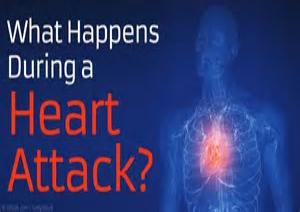
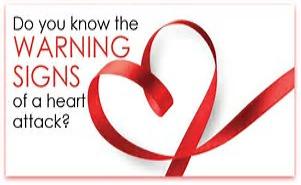
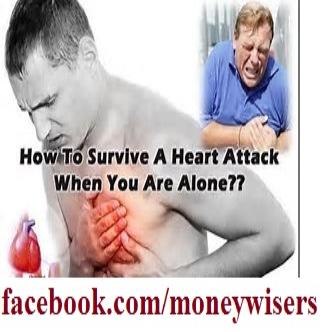
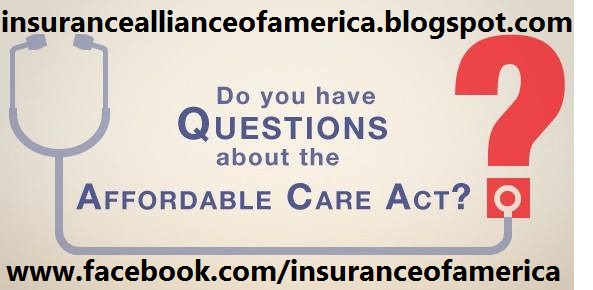
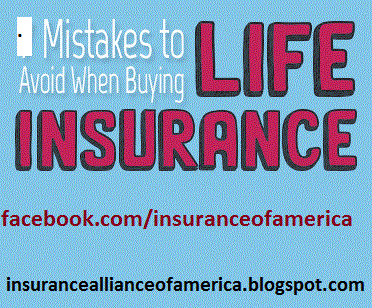
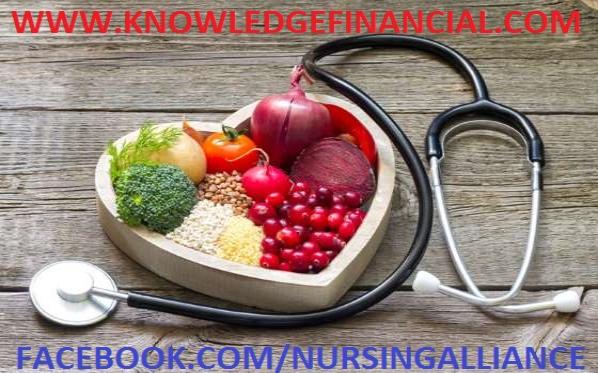
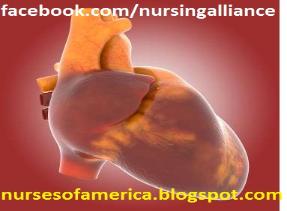
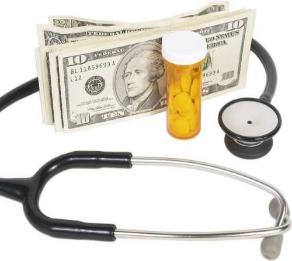
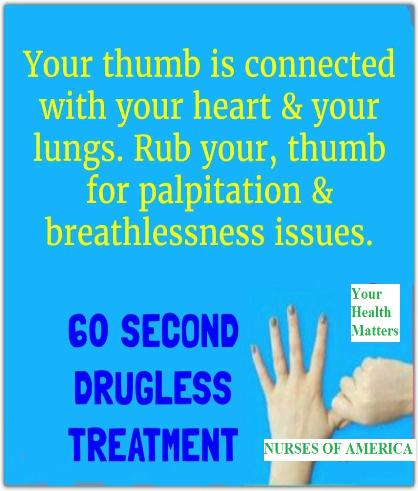
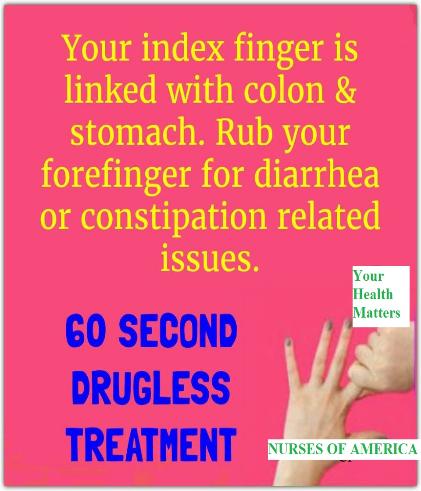
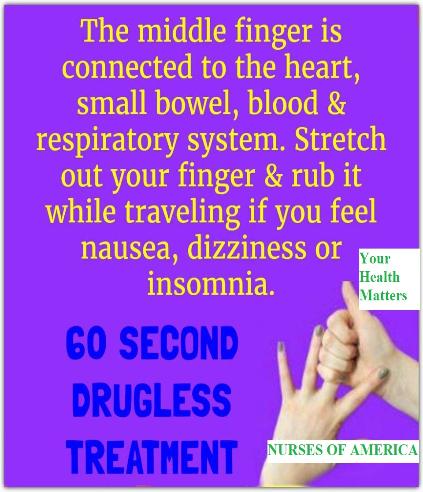
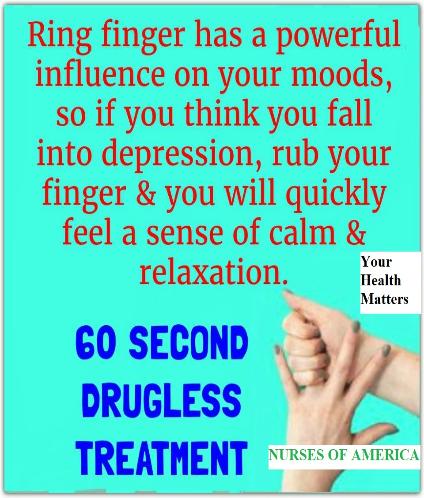
''Easy access to health care
information.
Find and learn about health
care facilities and providers
in your area''
=====
''Florida Board of Nursing
Information Center: Apply
For A License, Renew a
License, Check The Status
Of a License.
information.
Find and learn about health
care facilities and providers
in your area''
=====
''Florida Board of Nursing
Information Center: Apply
For A License, Renew a
License, Check The Status
Of a License.
''Look up, verify and
monitor your nurse licenses
anytime, anywhere.
BUYHEREMARKET.COM
helps find online verification
for endorsement to a nurse
practice in another state.
License expiration and
status updates, and anyone
who wants to verify a
nurse license.
monitor your nurse licenses
anytime, anywhere.
BUYHEREMARKET.COM
helps find online verification
for endorsement to a nurse
practice in another state.
License expiration and
status updates, and anyone
who wants to verify a
nurse license.
The highest paying nursing
jobs are:
1.Certified Registered Nurse
Anesthetist
2.General Nurse Practitioner
3.Gerontological Nurse Practitioner
4.Pain Management Nurse
5.Psychiatric Nurse Practitioner
6.Certified Nurse Midwife
7.Family Nurse Practitioner
8.Informatics Nurse
9.Clinical Nurse Specialist
10.Nursing Administrator
11.Nursing Educator
12.Neonatal Nurse
13.Critical Care Nurse
14.Health Policy Nurse
15.Medical-Surgical Nurse
jobs are:
1.Certified Registered Nurse
Anesthetist
2.General Nurse Practitioner
3.Gerontological Nurse Practitioner
4.Pain Management Nurse
5.Psychiatric Nurse Practitioner
6.Certified Nurse Midwife
7.Family Nurse Practitioner
8.Informatics Nurse
9.Clinical Nurse Specialist
10.Nursing Administrator
11.Nursing Educator
12.Neonatal Nurse
13.Critical Care Nurse
14.Health Policy Nurse
15.Medical-Surgical Nurse
To help you decide which
career direction is right for
you, take a look at some of
the highest paying specialties
for RNs, what you can earn
and how to get started as an
advanced practice nurse.
Certified Registered Nurse
Anesthetist (CRNA)
This highly skilled profession
involves preparing and
administering anesthesia to
patients in collaboration with
surgeons, anesthesiologists,
dentists, podiatrists, and
other qualified healthcare
professionals
career direction is right for
you, take a look at some of
the highest paying specialties
for RNs, what you can earn
and how to get started as an
advanced practice nurse.
Certified Registered Nurse
Anesthetist (CRNA)
This highly skilled profession
involves preparing and
administering anesthesia to
patients in collaboration with
surgeons, anesthesiologists,
dentists, podiatrists, and
other qualified healthcare
professionals
General Nurse Practitioner
As a general NP, you can choose to open an independent practice or work in a
variety of primary care settings. You can also advance your skills and your earning
potential along the way.
Requirements: A Master of Science in Nursing (MSN) is the minimum degree
requirement for becoming a nurse practitioner, followed by earning Nurse
Practitioner licensure as specified by your state.
Jobs: Employers include hospitals, clinics, and staffing agencies
As a general NP, you can choose to open an independent practice or work in a
variety of primary care settings. You can also advance your skills and your earning
potential along the way.
Requirements: A Master of Science in Nursing (MSN) is the minimum degree
requirement for becoming a nurse practitioner, followed by earning Nurse
Practitioner licensure as specified by your state.
Jobs: Employers include hospitals, clinics, and staffing agencies
Gerontological Nurse Practitioner
Older patients have a unique set of health issues requiring
specialized care. RNs who prefer working with elderly
patients should look no further than the gerontological
nurse practitioner track.
Older patients have a unique set of health issues requiring
specialized care. RNs who prefer working with elderly
patients should look no further than the gerontological
nurse practitioner track.
Pain Management Nurse
Pain Management Nurses help manage patient pain post-
surgery or work with patients who have chronic pain
issues. They work within a healthcare team to help
determine the cause of the pain and the proper course of
treatment
Requirements: While an advanced degree isn’t necessary,
sufficient experience as an RN is required to vie for the
Nurse Practitioner certification for Pain Management
Specialists
Pain Management Nurses help manage patient pain post-
surgery or work with patients who have chronic pain
issues. They work within a healthcare team to help
determine the cause of the pain and the proper course of
treatment
Requirements: While an advanced degree isn’t necessary,
sufficient experience as an RN is required to vie for the
Nurse Practitioner certification for Pain Management
Specialists
Psychiatric Nurse Practitioner
For nurses with an interest in mental health, working as a
psychiatric nurse practitioner will give you the opportunity to
work under a psychiatric physician and counsel patients
regarding mental health disorders.
Requirements: Because of the complexities involved in this
advanced position plan to earn a master’s degree with a
specialty in psychiatric nursing in order to break in
For nurses with an interest in mental health, working as a
psychiatric nurse practitioner will give you the opportunity to
work under a psychiatric physician and counsel patients
regarding mental health disorders.
Requirements: Because of the complexities involved in this
advanced position plan to earn a master’s degree with a
specialty in psychiatric nursing in order to break in
Certified Nurse Midwife
For RNs who love obstetrics, labor and delivery, and prenatal
care, becoming a Certified Nurse Midwife is the perfect career
path. CNMs mostly work in OB/GYN offices, clinics, or hospital
settings, but many open their own practices.
Requirement: To practice certified nurse midwifery, nurses
can go through the American Midwifery Certification Board to
earn the Certified Nurse-Midwife and Certified Midwife
designations
For RNs who love obstetrics, labor and delivery, and prenatal
care, becoming a Certified Nurse Midwife is the perfect career
path. CNMs mostly work in OB/GYN offices, clinics, or hospital
settings, but many open their own practices.
Requirement: To practice certified nurse midwifery, nurses
can go through the American Midwifery Certification Board to
earn the Certified Nurse-Midwife and Certified Midwife
designations
Clinical Nurse Specialist
Those who wish to work in a specialized unit or clinic should consider
the Clinical Nurse Specialist (CNS) path. In addition to diagnosing
and treating various conditions, you’ll be looked upon as an expert
within your healthcare team. You might also specialize in a specific
illness.
Requirements: A Clinical Nurse Specialist must earn a Master’s of
Science in Nursing, with a specialization in clinical nursing.
Those who wish to work in a specialized unit or clinic should consider
the Clinical Nurse Specialist (CNS) path. In addition to diagnosing
and treating various conditions, you’ll be looked upon as an expert
within your healthcare team. You might also specialize in a specific
illness.
Requirements: A Clinical Nurse Specialist must earn a Master’s of
Science in Nursing, with a specialization in clinical nursing.
Nursing Administrator
A nursing administrator deals with the backstage operations of
nursing, from budgeting and staff management to HR functions.
Requirements: Usually, a master’s degree in healthcare
administration is required, as is state licensing.
A nursing administrator deals with the backstage operations of
nursing, from budgeting and staff management to HR functions.
Requirements: Usually, a master’s degree in healthcare
administration is required, as is state licensing.
Neonatal Nurse
If you have a real love of babies, caring for newborns is
your main job as a neonatal nurse. This specialty commands
a strong salary, especially for advanced practice nurses.
Salary: The average hourly wage for neonatal nurses per
Payscale 10 is $29.60 per hour. Those who work in the
neonatal intensive care unit have the potential to earn
more, as do those with advanced certifications.
Requirements: While you can get neonatal unit experience
as a staff RN, earning either the neonatal nurse practitioner
(NNPs) or neonatal clinical nurse specialist (CNS)
designation is how the real advancement takes place.
If you have a real love of babies, caring for newborns is
your main job as a neonatal nurse. This specialty commands
a strong salary, especially for advanced practice nurses.
Salary: The average hourly wage for neonatal nurses per
Payscale 10 is $29.60 per hour. Those who work in the
neonatal intensive care unit have the potential to earn
more, as do those with advanced certifications.
Requirements: While you can get neonatal unit experience
as a staff RN, earning either the neonatal nurse practitioner
(NNPs) or neonatal clinical nurse specialist (CNS)
designation is how the real advancement takes place.
Critical Care Nurse
Critical care nurses require a specialized set of skills since they
literally deal with life-and-death matters on a daily basis. They
often work in hospital ICUs
Requirements: While no specific credentials are needed to begin
working in critical care, in order to advance you should consider
the CCRN certification exam.
Critical care nurses require a specialized set of skills since they
literally deal with life-and-death matters on a daily basis. They
often work in hospital ICUs
Requirements: While no specific credentials are needed to begin
working in critical care, in order to advance you should consider
the CCRN certification exam.
Medical-Surgical Nurse
Medical-Surgical Nurses are on the front lines of the
nursing profession. Because so much is required of them,
those who excel and decide to advance are considered to
have entered a specialty area.
Requirements: After working at least two years as an RN,
you can take the Certified Medical-Surgical Registered
Nurse (CMSRN®) exam through the Academy of Medical-
Surgical Nurses’ (AMSN) Medical-Surgical Nursing
Certification Board (MSNCB).
Medical-Surgical Nurses are on the front lines of the
nursing profession. Because so much is required of them,
those who excel and decide to advance are considered to
have entered a specialty area.
Requirements: After working at least two years as an RN,
you can take the Certified Medical-Surgical Registered
Nurse (CMSRN®) exam through the Academy of Medical-
Surgical Nurses’ (AMSN) Medical-Surgical Nursing
Certification Board (MSNCB).
APRN - Advanced Practice Registered Nurse
Nurse practitioner
A Nurse Practitioner (NP) is an Advanced Practice Registered Nurse
who has additional responsibilities for administering patient care
than RNs. What Does A Nurse Practitioner Do? NPs can prescribe
medication, examine patients, diagnose illnesses, and provide
treatment, much like. physicians do.
A nurse practitioner is trained to assess patient needs, order and
interpret diagnostic and laboratory tests, diagnose illness and
disease, prescribe medication and formulate treatment plans.
NP training covers basic disease prevention, coordination of care,
and health promotion, but does not provide the depth of expertise
needed to recognize more complex cases in which multiple
symptoms suggest more serious conditions.
Nurse practitioner
A Nurse Practitioner (NP) is an Advanced Practice Registered Nurse
who has additional responsibilities for administering patient care
than RNs. What Does A Nurse Practitioner Do? NPs can prescribe
medication, examine patients, diagnose illnesses, and provide
treatment, much like. physicians do.
A nurse practitioner is trained to assess patient needs, order and
interpret diagnostic and laboratory tests, diagnose illness and
disease, prescribe medication and formulate treatment plans.
NP training covers basic disease prevention, coordination of care,
and health promotion, but does not provide the depth of expertise
needed to recognize more complex cases in which multiple
symptoms suggest more serious conditions.
GERIATRIC NURSE:
Geriatric nurses provide care for elderly patients with various
health conditions. The role of a geriatric nurse is to provide
preventive and reactionary health care for seniors and they focus
their practice on conditions that primarily affect the elderly
population.
Several geriatric nurses work in nursing homes, assisted living
facilities, senior rehab centers, long-term care facilities and skilled
nursing facilities
Geriatric nurses provide care for elderly patients with various
health conditions. The role of a geriatric nurse is to provide
preventive and reactionary health care for seniors and they focus
their practice on conditions that primarily affect the elderly
population.
Several geriatric nurses work in nursing homes, assisted living
facilities, senior rehab centers, long-term care facilities and skilled
nursing facilities
LPN = Licensed practical nurses,
also called licensed vocational
nurses in some states, perform
many types of medical
procedures under the direct
supervision of a licensed
registered nurse or physician.
The basic tasks performed by a
licensed practical nurse are
administration of medicine,
measuring vital signs, measuring
and recording height and
weight, making entries on
medical records, performing
CPR, taking lab samples,
maintaining a clean and sterile
work environment.
Responsibilities of a licensed
practical nurse also include
educating their patients about
their medical conditions and
treatment options. Many
licensed practical nurses take on
clerical roles including
answering the phone, setting
appointments and updating
patients medical records
also called licensed vocational
nurses in some states, perform
many types of medical
procedures under the direct
supervision of a licensed
registered nurse or physician.
The basic tasks performed by a
licensed practical nurse are
administration of medicine,
measuring vital signs, measuring
and recording height and
weight, making entries on
medical records, performing
CPR, taking lab samples,
maintaining a clean and sterile
work environment.
Responsibilities of a licensed
practical nurse also include
educating their patients about
their medical conditions and
treatment options. Many
licensed practical nurses take on
clerical roles including
answering the phone, setting
appointments and updating
patients medical records
RN = A registered nurse is the most general term for a licensed registered nurse
and describes several specialty nurses as well as general practice nurses.
Regardless of the area that they specialize in, all registered nurses are trained to
perform the same basic set of duties.
The typical duties of a registered nurse include monitoring vital signs, checking
blood pressure, cleaning and dressing wounds, assisting physicians, updating
medical records, administering medicine, pain management, educating patients
about their health conditions, helping patients recover, performing medical exams
and screening tests.
Many registered nurses choose to specialize in one specific area of nursing such as
anesthesia, intensive care, dermatology, obstetrics and many more
and describes several specialty nurses as well as general practice nurses.
Regardless of the area that they specialize in, all registered nurses are trained to
perform the same basic set of duties.
The typical duties of a registered nurse include monitoring vital signs, checking
blood pressure, cleaning and dressing wounds, assisting physicians, updating
medical records, administering medicine, pain management, educating patients
about their health conditions, helping patients recover, performing medical exams
and screening tests.
Many registered nurses choose to specialize in one specific area of nursing such as
anesthesia, intensive care, dermatology, obstetrics and many more
| KNOWLEDGEFINANCIALGROUP.COM {Knowledge Financial Group} '' Here You Can Learn Anything - Anywhere At Anytime '' |
| BUYHEREMARKET.BLOGSPOT.COM |
P-
Pain disorder
Panic disorder
Paranoid personality disorder
Parasomnia
Parkinson's Disease
Pathological gambling
Persecutory delusion
Personality disorder
Pervasive developmental disorder not
otherwise specified (PDD-NOS)
Phencyclidine (or
phencyclidine-like)-related disorder
Phobic disorder
Pica (disorder)
Psychosis
Phonological disorder
Physical abuse
Polysubstance-related disorder
Posttraumatic stress disorder (PTSD)
Premature ejaculation
Primary hypersomnia
Primary insomnia
Psychogenic amnesia
Psychotic disorder
Pyromania
R-
Reactive attachment disorder of
infancy or early childhood
Recurrent brief depression
Relational disorder
Residual schizophrenia
Retrograde amnesia
Rumination syndrome
S-
Schizoaffective disorder
Schizoid personality disorder
Schizophrenia
Schizophreniform disorder
Schizotypal personality disorder
Seasonal affective disorder
Sedative-, hypnotic-, or
anxiolytic-related disorder
Selective mutism
Separation anxiety disorder
Severe mental retardation
Shared psychotic disorder
Sleep disorder
Seasonal affective disorder
Sleep terror disorder
Sleepwalking disorder
Sleep paralysis
Social anxiety disorder
Social phobia
Somatization disorder
Somatoform disorder
Specific phobia
Stereotypic movement disorder
Stockholm syndrome
Stuttering
Substance-related disorder
T
Tardive dyskinesia
Tourette syndrome
Transient tic disorder
Transient global amnesia
Trichotillomania
Pain disorder
Panic disorder
Paranoid personality disorder
Parasomnia
Parkinson's Disease
Pathological gambling
Persecutory delusion
Personality disorder
Pervasive developmental disorder not
otherwise specified (PDD-NOS)
Phencyclidine (or
phencyclidine-like)-related disorder
Phobic disorder
Pica (disorder)
Psychosis
Phonological disorder
Physical abuse
Polysubstance-related disorder
Posttraumatic stress disorder (PTSD)
Premature ejaculation
Primary hypersomnia
Primary insomnia
Psychogenic amnesia
Psychotic disorder
Pyromania
R-
Reactive attachment disorder of
infancy or early childhood
Recurrent brief depression
Relational disorder
Residual schizophrenia
Retrograde amnesia
Rumination syndrome
S-
Schizoaffective disorder
Schizoid personality disorder
Schizophrenia
Schizophreniform disorder
Schizotypal personality disorder
Seasonal affective disorder
Sedative-, hypnotic-, or
anxiolytic-related disorder
Selective mutism
Separation anxiety disorder
Severe mental retardation
Shared psychotic disorder
Sleep disorder
Seasonal affective disorder
Sleep terror disorder
Sleepwalking disorder
Sleep paralysis
Social anxiety disorder
Social phobia
Somatization disorder
Somatoform disorder
Specific phobia
Stereotypic movement disorder
Stockholm syndrome
Stuttering
Substance-related disorder
T
Tardive dyskinesia
Tourette syndrome
Transient tic disorder
Transient global amnesia
Trichotillomania
''Here you can learn about different
types of nurses and their requirement...
''Learn about different kind of mental
disorders...
''Learn about heart attack...
''Learn about board of nursing
nationwide in USA...
types of nurses and their requirement...
''Learn about different kind of mental
disorders...
''Learn about heart attack...
''Learn about board of nursing
nationwide in USA...
NURSES OF AMERICA - We invite you to visit more often our educative blogs, our resourceful web-pages, and our
interesting sites and certainly visit our useful social media pages.
Nurses Of AMERICA
In supporting the dedicated caregivers and heroes serving the healthcare industry. Salute to all healthcare workers who
are taking tremendous risks everyday to provide care to others. Your communities proud of you!
Thank you to all caregivers, we’re grateful of you for the work you do each and every day.
Absolutely, you are a source of strength in challenging times.
NURSES OF AMERICA
===================
During this time of collective concern, your friends at Nurses Of America
Continue to support you and your families by bringing you relevant information.
We recognize that everyone’s circumstances are different. While all of us are practicing social distancing and sanitary
hygiene methods to combat the great pandemy.
Our associates and management team have been monitoring the impact of this global issue.
The circumstances surrounding COVID-19 are unlike any our world has ever dealt with. In difficult times, we all value
those we trust.
We look forward to getting through this together.
BEST REGARDS,
ANTHONY JEANTY, LIFE INSURANCE, HEALTH, AND MEDICARE ADVANTAGE PLAN REPRESENTATIVE OF SOUTH
FLORIDA.
ANTHONY JEANTY, SOUTH FLORIDA REAL ESTATE PROFESSIONAL; REALTOR..
interesting sites and certainly visit our useful social media pages.
Nurses Of AMERICA
In supporting the dedicated caregivers and heroes serving the healthcare industry. Salute to all healthcare workers who
are taking tremendous risks everyday to provide care to others. Your communities proud of you!
Thank you to all caregivers, we’re grateful of you for the work you do each and every day.
Absolutely, you are a source of strength in challenging times.
NURSES OF AMERICA
===================
During this time of collective concern, your friends at Nurses Of America
Continue to support you and your families by bringing you relevant information.
We recognize that everyone’s circumstances are different. While all of us are practicing social distancing and sanitary
hygiene methods to combat the great pandemy.
Our associates and management team have been monitoring the impact of this global issue.
The circumstances surrounding COVID-19 are unlike any our world has ever dealt with. In difficult times, we all value
those we trust.
We look forward to getting through this together.
BEST REGARDS,
ANTHONY JEANTY, LIFE INSURANCE, HEALTH, AND MEDICARE ADVANTAGE PLAN REPRESENTATIVE OF SOUTH
FLORIDA.
ANTHONY JEANTY, SOUTH FLORIDA REAL ESTATE PROFESSIONAL; REALTOR..
=============
We will get through this crises stronger and more resilient.
Relief - Recovery - Rise up
Together we can beat the pandemic ass - Together we will stay strong - TOUGH TIME NEVER LAST, TOUGH PEOPLE DO!
ANTHONY JEANTY.
==============
There are 4 different types of human coronavirus and 3 severe types… MERS, SARS AND COVIT-19
Coronavirus disease 2019 (COVID-19) is the latest zoonotic coronavirus to cause an outbreak—in this case, a global
pandemic. Other zoonotic coronaviruses have been infamous for causing outbreaks of serious illness, such.
Coronaviruses (abbreviated CoV) are a family of enveloped, positive-sense single-stranded RNA viruses that infect both
humans and animals.
Coronaviruses got their name because their outer proteins look like a crown ("corona" means crown in Latin).
There are four main subgroups of coronaviruses: alpha, beta, gamma, and delta.
We will get through this crises stronger and more resilient.
Relief - Recovery - Rise up
Together we can beat the pandemic ass - Together we will stay strong - TOUGH TIME NEVER LAST, TOUGH PEOPLE DO!
ANTHONY JEANTY.
==============
There are 4 different types of human coronavirus and 3 severe types… MERS, SARS AND COVIT-19
Coronavirus disease 2019 (COVID-19) is the latest zoonotic coronavirus to cause an outbreak—in this case, a global
pandemic. Other zoonotic coronaviruses have been infamous for causing outbreaks of serious illness, such.
Coronaviruses (abbreviated CoV) are a family of enveloped, positive-sense single-stranded RNA viruses that infect both
humans and animals.
Coronaviruses got their name because their outer proteins look like a crown ("corona" means crown in Latin).
There are four main subgroups of coronaviruses: alpha, beta, gamma, and delta.




